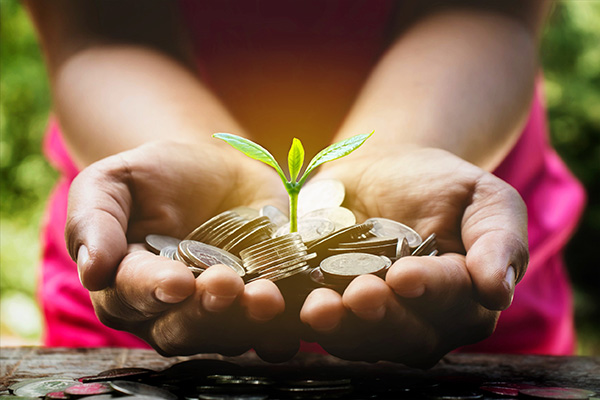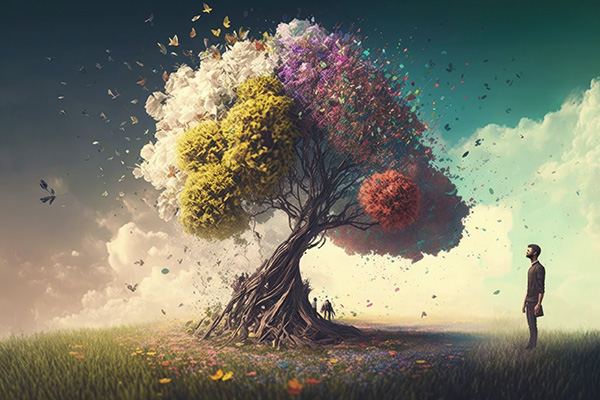spiritual growth
Finding Your Silent Space Within
 Finding our silent space within is the essential spiritual practice. Cultivating a sense of inner stillness, mindfulness, and presence is crucial to any spiritual, metaphysical, or esoteric practice, as it allows for a deeper connection to your higher self, the universe, and the divine.
Finding our silent space within is the essential spiritual practice. Cultivating a sense of inner stillness, mindfulness, and presence is crucial to any spiritual, metaphysical, or esoteric practice, as it allows for a deeper connection to your higher self, the universe, and the divine.
The silent space within is the inner connection point to our spirit or soul — the part of our being that is eternal and transcendent. This relationship is fundamental to most spiritual, religious, and esoteric traditions, which often describe the silent space within as a portal or bridge to a deeper understanding and connection with the soul, the divine, or the universal consciousness.
In many traditions, cultivating the silent space within is considered essential to achieving enlightenment or spiritual liberation — the realization of one’s true nature as soul or spirit, beyond physical and mental limitations. This realization of inner silence is our awakening to the eternal aspect of our being.
A concept used in various spiritual, meditative, and mindfulness practices, the notion of a silent space within symbolizes the inner sanctuary where one can retreat to find inner peace and strength, clarity, and a sense of centeredness, regardless of external circumstances. It is where we feel a deeper connection to something greater than ourselves, which is central to any spiritual path.
Signs Of A Pleiadian Starseed Encounter
 There is a unique group of highly evolved, spiritual beings present on planet Earth who come from the Pleiades, a cluster of stars also known as the Seven Sisters, located approximately 444 light-years from Earth in the constellation of Taurus.
There is a unique group of highly evolved, spiritual beings present on planet Earth who come from the Pleiades, a cluster of stars also known as the Seven Sisters, located approximately 444 light-years from Earth in the constellation of Taurus.
They are known in esoteric circles as the Pleiadians or Starseeds, and I have had the privilege of meeting some of these special individuals in person over the years as a lightworker and channeler. What I have learned from them has been both enlightening and thought provoking.
The Pleiadian Starseeds are extraterrestrial souls who have incarnated on Earth to fulfill specific missions related to bringing about spiritual awakening, sharing knowledge and wisdom to aid in the evolution of humanity, and helping to raise the collective consciousness.
The Pleiadians come from a more technologically and spiritually advanced society and are motivated by a desire to assist humanity in our evolution and to offer guidance on our path to higher consciousness and global spiritual awakening. They are here to assist in the transition to a new era for Earth, one that embraces higher spiritual values, peace and harmony.
Make Money The Root Of All Good!
 The desire for financial security and increased wealth often conflicts with some people’s deeply held spiritual beliefs, causing them much inner conflict and guilt. Sayings like “money can’t buy happiness,” “money is the root of all evil,” and “you can’t take it with you” don’t help either.
The desire for financial security and increased wealth often conflicts with some people’s deeply held spiritual beliefs, causing them much inner conflict and guilt. Sayings like “money can’t buy happiness,” “money is the root of all evil,” and “you can’t take it with you” don’t help either.
But what if we flipped the script? What if the path to money and wealth is also the path to peace and deeper fulfillment in our lives?
There is also the saying: “Money is a good servant, but a bad master.” What if money in the hands of kind, compassionate and conscious people is exactly what the world needs?
What if we stopped thinking of money as evil and started thinking of it simply as a tool for your spiritual growth and fulfillment? What if we began to see money as something good and benevolent that can be used for the greater good?
As spiritual beings, we chose to incarnate into this very time-space reality, fully understanding the rules of this dimension. One of the rules we understood was the need for physical survival and material security in this world.
Many generations of ancestors who incarnated before us fought hard to survive here in physical form, inventing new and clever ways to make the struggle to keep body and soul together a little easier for us. In the process, they co-created the Earth reality as we know it today – a co-created reality that revolves around a monetary economic system, for better and worse.
A Christian Mystic’s Guide To Dealing With Pain
 Our search for the meaning of pain, hardship, and suffering is a profound and enduring human endeavor.
Our search for the meaning of pain, hardship, and suffering is a profound and enduring human endeavor.
Throughout history, our spiritual beliefs and religious teachings have helped us understand and find meaning in life’s challenges and painful experiences.
These interpretations provide comfort, guidance, and a sense of peace in the face of adversity as we learn that suffering has a purpose or can lead to spiritual growth, enlightenment, or a deeper connection with the divine.
Our spiritual quest to better understand pain is driven by a deep desire to make sense of life’s challenges and to discover how these difficult experiences fit into the larger tapestry of our existence.
Religions and spiritual wisdom traditions around the world offer different perspectives on pain and suffering, each with its own explanation for why these experiences occur and how they should be approached or understood.
These diverse perspectives all share certain common threads: that the origins of pain and suffering lie in the concept of duality; that there is meaning to be found in suffering; and that through faith, reflection, and spiritual practice we can transcend the pain caused by duality and connect with something greater than ourselves.
A Foundation Of Well-Being For The Psychic Medium
 I recently enrolled in a year-long mediumship development course. One of the introductory topics we have been exploring in the course material is the importance of self-awareness and recognizing what affects your personal and spiritual well-being.
I recently enrolled in a year-long mediumship development course. One of the introductory topics we have been exploring in the course material is the importance of self-awareness and recognizing what affects your personal and spiritual well-being.
This is crucial in psychic and mediumship work, as various factors can affect one’s overall well-being and ability to perform optimally during a reading. As a psychic medium, you have an obligation to provide the best possible guidance to your clients by taking good care of yourself.
And even if you follow various self-care practices and know what you need to do to maintain your well-being, there will be days when you simply do not feel your best. Therefore, it is also important to be self-aware and able to recognize when you are out of alignment with the source of your being or feeling “out of sorts.”
The mediumship course explores several interesting topics and aspects of self-awareness beyond what is generally experienced on a daily basis. For example, negative energy in your environment, tension and conflict in relationships, and worries about people, pets, or finances. It is also important to recognize that we are all unique and that what may significantly affect one individual may not have the same effect on another.
The Magical Gift Of A Spiritual Relationship
 One of the greatest privileges and gifts we can experience in this life are the spiritual relationships we have with certain people who come into our lives at just the right time and place.
One of the greatest privileges and gifts we can experience in this life are the spiritual relationships we have with certain people who come into our lives at just the right time and place.
A spiritual relationship is a deep and profound connection between two people that transcends the physical and emotional and touches the very essence of our being.
It’s characterized by a shared spiritual journey, values and beliefs that foster a sense of unity and purpose. In such relationships, both parties experience a deep sense of understanding, empathy, and support for each other’s spiritual growth and well-being.
Spiritual relationships can take many forms, including romantic partnerships, friendships, and family ties.
These connections are not necessarily defined by the conventional markers of relationships, but rather are built on mutual respect, love, and a shared pursuit of spiritual fulfillment and enlightenment.
These relationships are deeply meaningful and often challenge individuals to evolve and expand their understanding of themselves, others, and the universe. You and the other person are on the same spiritual plane and see things in the same way. Secret doors and new pathways open for you. Remarkable things happen that often seem truly magical.
The Spiritual Practice Of Rune Reading
 I have recently reintroduced rune reading into my daily spiritual routine. I had briefly dabbled in it a few years ago when I was exploring various methods of divination.
I have recently reintroduced rune reading into my daily spiritual routine. I had briefly dabbled in it a few years ago when I was exploring various methods of divination.
But this time, as my quest has become more personal due to recent events in my life, and I found myself remembering much of what I had learned years ago, the decision to use the runes again has proven to be a deeply enriching experience.
I have since discovered that the runes are a fantastic spiritual tool for deeper introspection, inner guidance, and connection to the universal spiritual principles that underlie these small tablets of ancient wisdom.
The term “rune” itself means “secret” or “mystery” in Old Germanic languages, reflecting their traditional use for various purposes, including writing, divination, and magical practices. Each runic tablet or stone contains a character from the ancient alphabets of early Germanic and Scandinavian cultures, including the Elder Futhark, which is the oldest form of the runic alphabet.
The Elder Futhark dates from the 2nd to 8th centuries and consists of 24 runes, each with its own unique meaning and symbolism. I use the Elder Futhark, which is the most commonly used rune set in divination practices, just as the Rider-Waite Tarot deck is the most commonly used in cartomancy.